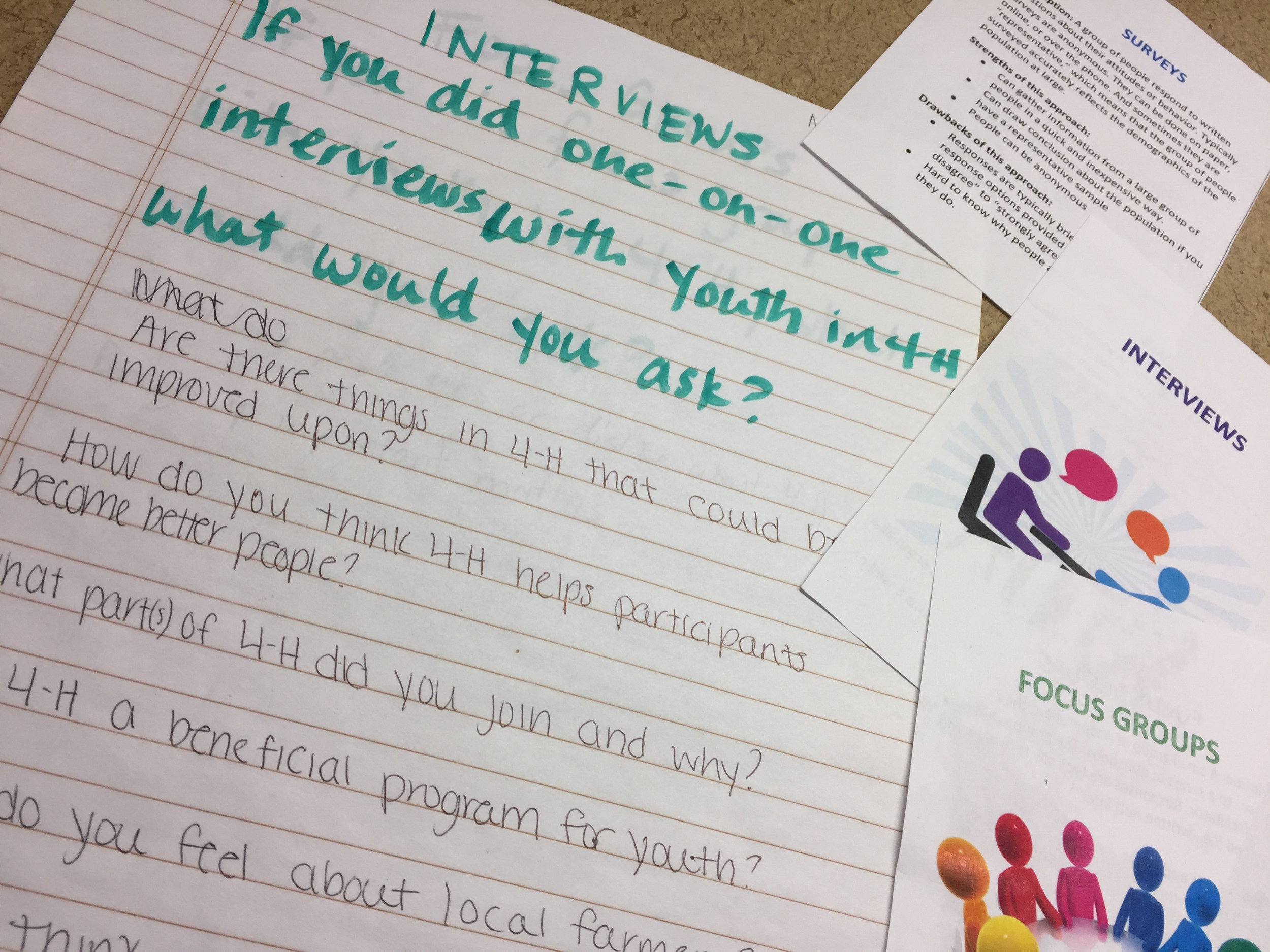When youth write their own research questions
Kristen Elmore, PRYDE Postdoctoral Fellow
Much of my time as a postdoctoral scholar is spent focusing on my own research questions—designing methods to answer them and mapping out the practical implications of those answers. Working with PRYDE, however, has presented an opportunity to hear from young people about the research questions that they would find interesting. As part of an educational workshop I’ve been conducting in 4-H, I’m asking youth to put themselves in my shoes – if they were going to run their own research study, what would they ask young people in 4-H? The questions they’ve suggested are fascinating.
These educational workshops with young people in 4-H are a place to talk about social science research. We address a number of questions about social science:
- What types of research do social scientists do?
- What types of questions do social scientists ask?
- And how do you know if you’re asking the right questions?
My goal in these workshops is to take advantage of meetings with youth as an opportunity to introduce a field and career path that they may not often encounter, and to help them make sense of the research that I’m asking them to participate in (a focus group with their peers). At the conclusion of the workshop, youth break into small groups and write their own research questions that they would ask if they did their own study with 4-H youth. Over the course a few workshops, these youth-generated research questions mostly fit into four categories.
Workshop materials
The first category is General 4-H Participation and includes questions about the types of activities that other youth are involved in:
- What club are you in and what do you do in it?
- Do you do teen council?
- Do you show at the fairs? What do you show?
These questions suggest that youth are curious about what other teens in 4-H are up to.
The second category includes Well-being questions:
- How do you think 4-H helps participants become better people?
- Do you think that 4-H would be beneficial to other kids?
The well-being questions are similar to those in the third category, Career Building, because both in focus on how 4-H benefits youth:
- Would you say 4-H has inspired you or prepared you for your future career?
- Would you agree that 4-H has prepared you for future obstacles that you may come across?
- Have you done something in 4-H that you would like to make a career?
- Has 4-H influenced your decisions on jobs?
Finally, the fourth category includes questions about Social Connection:
- Have you had a role model in your life from 4-H?
- Do you have friends in 4-H? Do you feel like you fit in?
- Have you met anyone in 4-H that you still communicate with?
Looking at these loose themes, I’ve taken two key conclusions from this exercise. First, these questions themselves give me insight into the benefits that youth perceive from their own participation in 4-H. The domains they chose to focus on suggest to me that they themselves see their participation in 4-H as related to their career options as well as their social network. And second, going forward, I hope to find ways to incorporate youth voices into the questions that I ask. There is an exciting amount of overlap in the questions that came to mind for young people and the goals of the focus group research study I’d designed. However, their questions were distinct in a way that could improve future iterations of this research. Youth generate wording and concepts that I suspect would easily resonate with their peers and that I would not be able to come up with on my own. Teaching 4-H youth about how social science works can be the first step to their deeper involvement in the research process.


